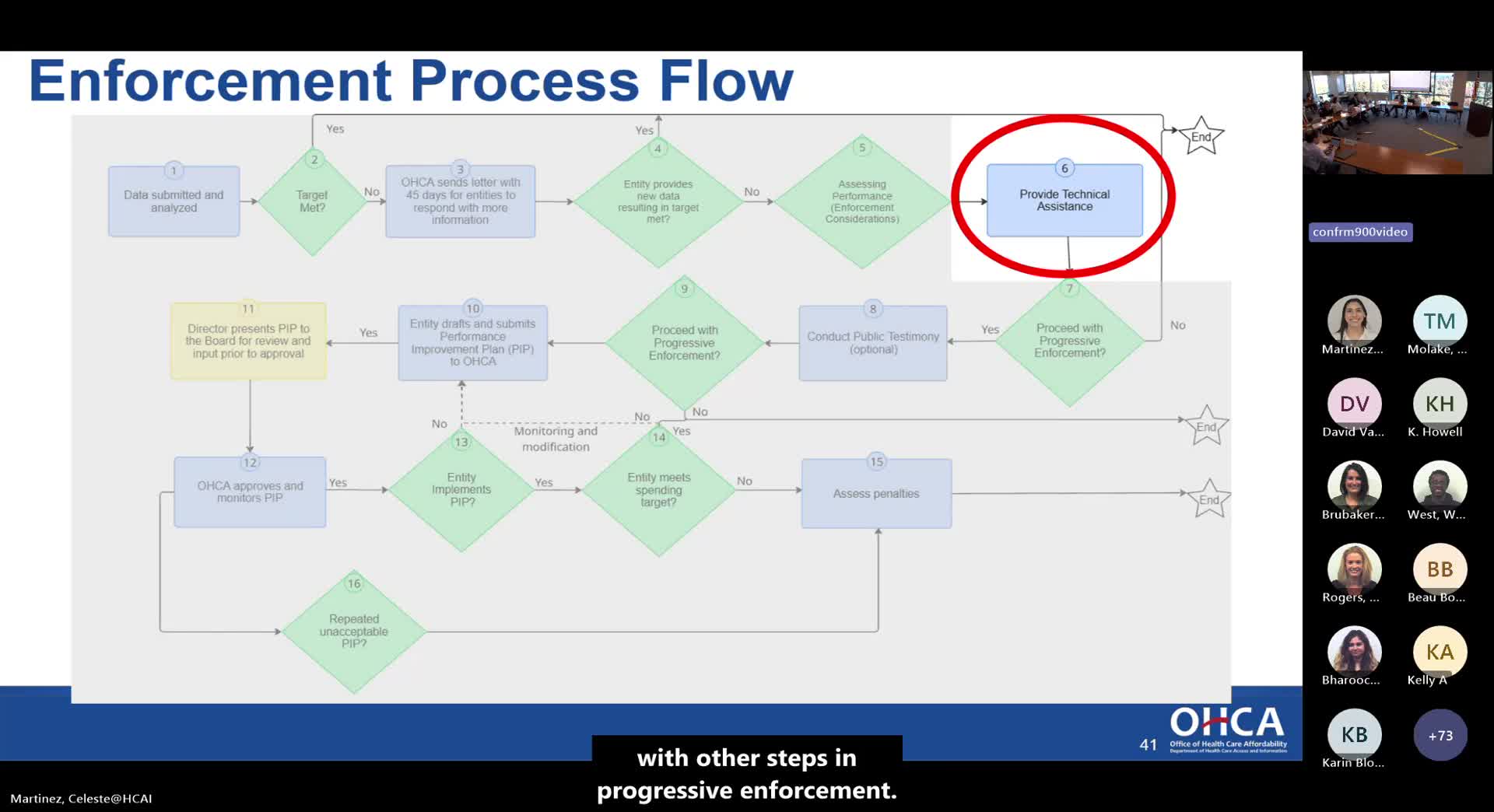Board debates technical assistance, public testimony and waivers for spending-target enforcement
Get AI-powered insights, summaries, and transcripts
Subscribe
Summary
The Health Care Affordability Board discussed how technical assistance, performance improvement plans, public testimony and waivers should operate within the office's progressive enforcement process for spending targets. Members sought clarity on tailoring assistance, reporting requirements and confidentiality rules.
The Health Care Affordability Board spent a large portion of its Oct. 17 meeting refining how the office will enforce statewide spending targets: what counts as "technical assistance," how and when the office will require public testimony, and when waivers may be appropriate.
Deputy Director Vishal Pagani told the board the statute envisions progressive enforcement: notification after a target exceedance; an opportunity to provide additional data and receive technical assistance; and, if needed, further steps such as performance improvement plans (PIPs) and penalties. Pagani said technical assistance would take the form of letters that point entities to models, literature and strategies to increase primary care investment or adopt alternative payment models but would not mean OCA staff act as an entity's management consultant.
Board members pressed staff to clarify how technical assistance differs from a PIP. "Technical assistance at a high level is helpful, but if the entity follows that assistance and remains over target, what next?" Board member Richard Pan asked. Staff responded that PIPs are entity-specific corrective-action plans with measurable milestones and monitoring; PIPs can run up to three years and are the mechanism staff would use to require concrete changes.
The board also debated whether and when to compel public testimony from entities that exceed targets. Pagani presented public testimony as an optional, director-level step that can be oral or written. Sheila Chitayan, chief counsel and assistant deputy director for compliance, cautioned that certain information submitted by entities may be confidential under statute. "If it's already in the public domain, that's fine, but we have statutory confidentiality requirements," she said.
Board members and members of the public described several roles for public testimony: (1) a platform to hold large or dominant market players to account; (2) a public record that helps consumers and purchasers understand performance drivers; and (3) a fact-finding step that could inform whether a PIP is appropriate. Some members worried that compelling testimony could be perceived as punitive if used routinely; others argued that for matters of high public salience the public should have an opportunity to hear from the entity.
Waivers of enforcement also drew scrutiny. The statute permits entities to submit information in support of a waiver for "reasonable factors," anticipated investments in primary or preventive care, or "extraordinary circumstances." Pagani said the office's view is that the waiver pathway is duplicative of enforcement considerations OCA already uses to prioritize actions but could be reconsidered after the office gains more multi-year enforcement experience.
What staff will do next: OCA will bring drafts of guidance for the board's review in coming months, with PIP design and reporting expectations earmarked for January and February discussions, staff said.
Clarifying details
- Entities notified of exceeding a target have 45 days to respond with additional information or a waiver request, per statute.
- PIPs would be entity-specific, measurable, monitored and may run up to three years; staff said PIP milestones should be quantifiable.
Quotes
"Technical assistance does not mean OCA will serve as a management consultant to a health care entity," Deputy Director Vishal Pagani said.
"Certain submissions are subject to statutory confidentiality and cannot be put in the public domain," Chief Counsel Sheila Chitayan said.
Ending
Board members asked staff to return with more-specific drafts about PIP structure, PIP monitoring and public-testimony procedures, and to detail what parts of a submitter's response would remain confidential and which would be public.
